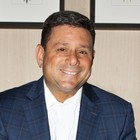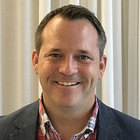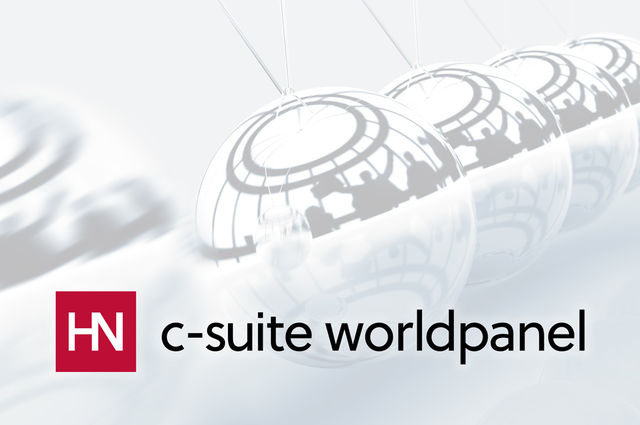Ranking Human Capital from “taking them for granted” "the" link to success
13 experts shared their view
Hospitality being the embodiment of people connecting to people, our human capital then automatically should be the most important asset we have. Every hotel or chain always talks a great deal about how important they judge their associates and all they do for them. But do they match their company values to their team members' values? Do they feel comfortable and able to empower their associates to deliver that important connection to their guests in full trust? Does selection still take place based on skill level and experience? Are interviews the right way to select?
In a digital tech world, where the environment and so many other demands take center stage and the financial influence of the past year's pandemic is so deeply felt, what should be the minimum base of human capital focus and what is your advice to all hotels/chains out there...

This viewpoint is co-created with IDeaS a SAS company
More information
Good hospitality is built on successful relationships, and Cycas's focus has always been to make our hotels the best places to work as well as stay.
We have always maintained that we have three 'customers': our guests, our owners, and our Cycadettes. Ever since we opened our first property, Cycas's leadership team understood that our business success would rely on our ability to convert employee satisfaction into happy guests and delighted partners.
With our company expanding fast and moving into new territories, and opening one hotel every month this year, we know our award-winning performance culture is one of the key differentiators that makes our management style attractive to owners. Which is why hiring, developing and retaining top talent has always been central to everything we do.
When you consider the recruitment challenges currently being experienced across the hospitality industry post-pandemic, it's absolutely vital we continue to find the right talent to keep delivering our trademark positively outrageous service everywhere we operate. Which is why our strategy remains to employ and retain the best people available.
A key part of Cycas's ability to stand out for the right reasons within a competitive industry has been recognising how – although skillsets are important for certain roles - confidence and personality are vital to offer our guests a more personal and relaxing experience. We are especially proud to have the most diverse and inclusive team in the industry - not to tick a box, but because we know that diversity makes us better.
To help us hire people who find it easy to build genuine connections, we defied the traditional industry enrolment philosophy back in 2008 and pioneered the concept of 'audition days' – an initiative which saw us offer industry novices customer-facing roles And, to help us continue to prioritise culture-fit over experience while recruiting for new hotel openings during the pandemic, our People & Culture team made the most of advancing technology to successful move this process online.
However, hiring people for their personality and then retaining this talent only works if you can create the right environment; one that motivates them to have fun, empowers them to be themselves at work, and encourages them to be the best version of themselves. Similarly, we know that employee voices must be valued to inspire a healthy, can-do attitude, and help people feel they belong to something bigger than 'just' a job.
This is one of the reasons we prefer to measure retention rates rather than staff turnover, and are delighted our staff retention rates remain consistently higher than industry standards and Cycas has been consistently identified as one of the 'Best Places to Work in Hospitality' over the last four years.
That all five GMs who worked at our first property – myself included – still work within Cycas a decade on is further testament to how our people-focused approach works. Not only does it demonstrate how their career growth and our business success go hand in hand, but it also illustrates how we ensure our unique organisational culture and key values are embedded throughout the organisation.
With ongoing media reports of hospitality staff shortages, our ambitious growth plans still rely on us being able to attract the best people to maintain our award-winning performance culture. With 85% of Cycadettes joining via recommendations, and 91% describing Cycas as a happy place to work, we hope our reputation for genuinely putting people first will help create a real point of difference.
Our people are Radisson Hotel Group's biggest asset. We are globally connected, proudly inclusive, forward thinking, and powered by passion in all we do. Radisson Hotel Group is proud to be an employer of choice delivering meaningful career moments, and to be a gateway to a world of opportunities across 120 countries. As a 9-time honoree of the World's Most Ethical companies and the first in the hospitality industry to publish a Modern Slavery statement, we care about the people in our hotels and in the entire value and supply chain.
Developing talent is one of the five pillars of Radisson Hotel Group's Employer Brand standards as well as an integral part of our culture beliefs. From day one, we instill in our team members our strong company beliefs and our signature service ethos which we have been delivering for over 25 years, “Yes I Can”! This motto resonates through each touchpoint of the company - internally with our peers, externally with our guests and business partners, and beyond our hotels with the local communities where we operate and live.
One of our key development tools is our Radisson Academy which offers continuous learning opportunities with customized training programs from induction to leadership, right from day one. With strong internal equity, Radisson Academy acts as a key motivator for talent to join Radisson Hotel Group. We are consistently investing in our team members' personalized development and in 2019, we partnered with Typsy, an education technology learning platform of choice in the global hospitality industry. Typsy offers a growing library of 1,000 bite-sized video lessons, for practical, on-the-job learning, quizzes, and certificates. During the pandemic, we expanded our online offering with self-paced, virtual, and peer to peer interactive training modules on business and personal development topics, expanding the roster of our leading experts with speakers from the London Business School, as well as with internal experts to share their insights on innovation in critical times.. With tremendous success as team member online learning participation rates have increased five-fold since the beginning of 2020.
Our learning and development training program is constantly evolving. We are currently experimenting with virtual reality trainings for service and behavioral skills, as well as our “Fast Track Hospitality”, a new training program under development which aims to onboard team members who join without a specialist hospitality background efficiently.
My advice to other hotels and hotel groups, would be to stay in touch with your teams, to listen, and adapt quickly, using technology to your and their advantage, and to continue investing in your employees' long term success as they are your most important asset.
Our NPS scores during COVID were high. In fact, they were higher than ever and that's because of our people intuitively grasping that we did not just want our guests to feel safe and comfortable, but also making sure they had a great time and felt connected with other members of our community. Because that's what TSH is all about. What TSH stands for is very close to my own view of life. That's not fully deliberate, it came to be that way because I have to make decisions that suit me. The closer I stay to myself, the more honest it becomes. It's hard to train intuition which is why in our recruitment process, we deliberately look for people who share our values, who share our energy to grow and learn, while of course making sure they have a skill set that helps us as an organisation move forward. Many times, people encounter situations that cannot be predicted, centrally scripted, or endlessly trained. That's why it's important to have people around us who ascribe to the essence of what we're about, who know and feel what the right things are to do. Empowering them to trust that when they act on behalf of TSH they do so reflecting what we stand for. During the interview process, which can be online and face to face, we strongly look for that cultural fit. We also encourage people to come and experience one or more of our TSH locations because that's often when they and we'll know we have a match!
As an industry that's come from such a long history of capital needs, including a huge range of human capital expenses, I don't think there's much change in minimum base of human capital focus for hotels. We're on the other side of that spectrum. Even with the addition of robots, contactless check-in, etc. at our hotels, this is a human-heavy industry and we will always make sure our hotels are meeting guests where they want to be met, and providing that level of high-touch services where our guests want it, when they want it. But in other back of house operations, where our guests are less likely to want it, yes we will scale back labor. If more guests want contactless check-in, automated responses and robots to deliver in-room dining, then great, let's give them what they want to better their experience. But until certain aspects of our industry starts to change dramatically (i.e. frequency of housekeeping), I don't think there's much difference in human capital needs now compared to our pre-pandemic days, even with the addition of new technologies like Alfred the Butler (robot) at our Dream Hollywood property. Alfred is just one of the ways we're using technology to entertain and protect our guests while optimizing efficiency. The robot technology of delivering items to guest rooms really works and saves on labor expense while reinforcing our commitment to delivering impeccable service, and introducing technology like Alfred, provides our associates more time to focus on the personalized service and needs of our guests. Over time, yes, technology may replace or augment the mundane, repetitive and dangerous jobs – be that through automation, mobility, robotization or next gen technology applications with the goal of doing more with less – but technology will never replace highly qualified hospitality jobs like General Management, Sales & Marketing, Revenue, Guest Services, Concierge, etc.
Since the pandemic began, at Benchmark Global Hospitality we have repeated a motivational phrase many times – soon it will be our time to heal the world with hospitality. Well, that time is upon us! While we have no choice but to embrace a digital world, the human-centered enterprise of hospitality will always rely on the hands, hearts, minds and souls of human beings. Yes, at Benchmark we are embracing technology where we can, focused on enhancing efficiency, productivity, communication and service. However, our focus on being an employer of choice has not changed – if anything, it is emboldened post pandemic. I strongly believe companies with weaker cultures in a highly competitive employment environment will suffer. Nothing should take the place of caring for the team members who deliver to our guest every day!
Human connections are at the centre of a community-centric ecosystem and the whole industry. They have been the corner stone of impactful projects and initiatives that not only bring people together but foster a curious mindset, genuine hospitality touch and a plethora of memorable experiences. The more personalized the experience, the more memorable it becomes. We apply the same approach to talent search and career placements where Job Descriptions come secondary. We do our best to tailor job descriptions to talent, individual's willingness to grow and readiness to develop his/her own skillset, to fit the team's culture and to adapt to our pipeline and team growth with agility, adaptability and the ongoing strife to empower and be empowered. This is how a team can jointly deliver – on the guest experiences and on everyone's personal objectives.
We believe that skills can be learnt and groomed, unlike passion, drive and commitment to excellence and personal self-improvement. These qualities help create a team of do-ers who curate the best experiences for guests. This is what we call soft-touch hospitality - the essence of our industry today. Interviews work as the litmus test for an applicant when an organisation tries to detect the personal drive part.
Post pandemic we are gearing up to rebound and reopen as a sector, customers are enthusiastic to return but hospitality businesses are scrambling around for workers. Job openings in the US, UK, EU and many other markets are at a record high yet the number of vacancies far exceed hires, in some places setting records for the largest gap. The swarm of those who have left or do not want to come back to their jobs highlights how hospitality workers around the world are rethinking their jobs after the turbulence of Covid. While there are many factors at play for this, it does raise uncomfortable questions about the aspirational quotient of our industry in the changed paradigm as well as what needs to change going forward.
I am a big techno-optimist and I genuinely think tech and automation can be especially useful in this staff shortage crisis so we use it to get more efficient and go for automation to improve efficiency unless Governments come up with a labour plan or a subsidy model to prevent long-term damage especially to SMEs.
In the meanwhile, hotels/chains might want to consider short term solutions.
- Automate the roles which are repetitive, monotonous and tedious.
- Rethink roles to induce excitement and make it more multi- faceted and interdisciplinary with a big draw being your culture.
- Weave in flexibility and offer hybrid systems of working to those who need time to readjust.
- Target the hungry newcomer who is passionate about people and keen to make a mark in the industry.
- Expand the talent pool joining the sector and recruit innovatively. Eg. the belonging/snowflake campaign of the British Army which is now a case study of best recruitment practice.
- Rethink the fundamental power balance between staff and management – flat is the new order?
Culture, People and Process;
If there has ever been an "intangible", possibly "providing service" is the best example.
This is the very foundation of providing hospitality and making that true / real contact with our guests.
Our industry is fragmented and diverse, covers the entire globe and having a universal measuring stick is impossible.
The industry's answer for years has been scripting and measuring against that, resulting in strange and artificial feeling interactions.
"did you have a nice trip...", "it is so good to have you back...", "how was your stay..." We all know these heart crunching questions that mostly are asked without any true interest or backed up by the emotion they deserve.
And then there was the third party online feedback and scoring. What a revolution, as the guest finally had a means to truly say what they were thinking.
Was that then the universal measuring stick to compare...
The true answer of course lies in the fact how our human talent / capital is able to connect with the guest.
So the only right answer is our human capital...and luckily all hotels and chains are convinced that by saying that their human capital is the most important, they actually are affecting the outcome in service.
The problem however is often that the hotel or company culture is not in sync with its objectives.
Let's be honest, most management time is spent on "content" and "process", no time or attention goes to the "context". Didn't Simon Sinek teach us that the "why" should stand central in all we are doing.
So if you want consistent and superb guest satisfaction, this can only be reached by shared values that result in a harmonious culture.
Yes the process is important as well, but possibly the overwhelmingly top down found management style isn't the best solution.
How about an inverted pyramid organisation, where the line staff is at top, aren't they the ones delivering and connecting with the guest.
Process alone will get you absolutely nowhere. Culture and people will get you further, but not all the way either. So a balance between how we run our organisations, combined with our shared values creating culture is the holy grail.
So let's talk about shared values, one needs to be crystal clear on the company values and those need to be crisply shared with all human capital.
Actually it should be the very basis on how human capital gets hired into the company and without a match better than 85%, the employment sooner or later will end in a deception for the employee or employer.
No interviews won't do anymore and more creativity in finding out about talents values is needed.
So the only answer to the intangible providing service questions is; aligned culture through shared values between the hotel / chain and human capital will result in perfection. Toss the key to your property to your shared value human capital and empower them to the max.
Top it off with skills and process training and success is guaranteed.
Hospitality is about people. While the pandemic has accelerated digitalisation and forced lesser physical contacts, hospitality is fundamentally about connection. We can present the best quality hardware and the most advanced innovation, yet in this business, it comes down to emotional connection. This cannot be replaced by hardware – but the “heart-ware” that arises from our most important asset – our people.
This is what Pan Pacific Hotels Group holds true as our promise – “Sincerely Yours”. It is about service from the heart, forming that intangible connection with our guests, our partners, our associates and our owners. This promise is nurtured upon the foundation of a “Trust” culture, embodied in our core values of integrity, teamwork, respect, results and creativity. These are spelt out in a clear blueprint which puts “People, Positive Culture, Processes, Profit” as inseparable pillars.
Empowerment is an extension of trust.
In building a “trust” culture, we believe that it is about walking the talk. It must start from the senior management as role models in living out and breathing the values. When behaviours are congruent to the company's beliefs and values, this resonates naturally through the organisation, forming a strong positive culture. A healthy culture connects the associates to one another and glues them to the company.
This becomes a powerful motivating force for our teams to want to do the same for our guests. That is what we call, service from the heart.
People development and welfare often falls on the shoulders of our human resource department. I would say this is misnomer. Everyone in the company has to play a part.
While we can hire those with a stronger service mindset and higher skills level, it is the company culture which will nurture and motivate our associates to grow and serve as they are served. The focus must not only be on the recruitment, but importantly, the retention of our associates.
My advice to fellow hoteliers will be based on our core belief at Pan Pacific Hotels Group.
Simply, people first.
We are not saying that other agendas are not important. A company must continue to grow, innovate and keep in pace with the new normal. However, people must be the primary focus. They are irreplaceable.
We must continue to invest in our people and take care of them.
Through the acceleration of digitalisation and the new practices which arose from the pandemic, we are looking at job redesign to ensure that our associates are upskilled and reskilled to meet the needs of the future. We invest in their training and development. Success stories have lent to greater job satisfaction and optimism towards career advancement.
On the softer yet critical angle, we focus on communication. It is not limited to an open door policy across the organisation, but also a proactive stance from senior management to reach out to convey care and encouragement, whether through personal visits (where possible) or via zoom calls for our overseas colleagues. Our associates must feel that that are listened to and they are able to share openly.
In conclusion, we recognise that from time forth, hospitality is a people's business. Our associates form the heart of the company. It is imperative to create a strong culture of trust and belonging so that they will feel confident and cared for to in turn take care of our guests. In spite of the many challenges and changes in today's world, we must continue to invest in our teams to develop in them an ownership mindset – so that they will and can be the priceless asset which brings success to the company.
Organizations are built around a purpose. This purpose, or what management gurus refer as Mission, sets the stage for the organization's objectives; near term and long term. For an organization to function effectively; 3 things are important:
- Product: Product is about the experience. If we put it in context of our industry; the booking experience, the arrival experience, the stay experience, the departure experience…and so on. The product offering should relate to the travel intent. ie. I booked a room at an extended stay hotel for the next 3 weeks; I would expect a comfortable bed, have the ability to cook my meals in a modern kitchen and have ample storage in the room with a very comfortable bathroom. Product design catering to the travel intent is critical; got to nail this. A good product backed by solid operations and motivated staff will drive profits.
- Processes: Keep this one simple; work towards decluttering and digitizing processes. Use simple tech (tablets, videos, digital look books, etc.) to train staff and to manage your operations. Very important to build / invest in platforms that are scalable and allow for seamless workflows / processes. Move away from binders; SOP's are best explained visually. Use technology where possible to automate and support staff to provide superior guest service. Processes are guardrails that need to evolve with time. Status quo leads to stagnation in an organizations' human capital.
- People: Connecting Product and Processes are our People; our colleagues in the field and HQ. To me, this is the most important link and the genesis of defining what is the importance human capital for an organization. Even though human capital (in its purest definition being a collection of intangible assets) doesn't show up on a balance sheet; a well-informed, well communicated and trained workforce will always result in higher performance. My learning when it comes to this topic is simple: Ensure you, as a leader, are communicating with every employee on your team. Additionally, give employees the ability to communicate back; foster an environment that is transparent with the organization's successes and failures and share those learnings… in an open forum. Some of our staff members don't have dedicated emails; so invest in platforms that allow you to communicate with them; every housekeeper, maintenance technician needs to know how the organization is performing; where is the company headed.
Yes, I believe interviews are important and yes, it is important to make training an ongoing and continued process. In fact, interviews are very important and I strongly encourage in-person interviews. That said, we should never trivialize the importance of ensuring each team member knows exactly what the company's priorities are and how is it that we will achieve them. Key over here; we all should know our role in the organization's growth; this creates alignment on how to deploy human capital. Success is not just for the company; but for all of its team members.
At its heart, hospitality is all about our incredible colleagues caring brilliantly for the guests who choose to stay with us. That's why it's vital that we invest in, and nurture, our people – all of whom have done such an outstanding job in the most difficult of circumstances since the pandemic began.
It's clearly people who bring a brand, a property and its surroundings to life. Their personalities and their work are what our guests remember, and it's why they come back to us.
We need to have enough people, doing a great job, to guarantee an outstanding guest experience – that will never change. But what about that has changed because of the pandemic? Many of you will know that we are facing significant industry staffing challenges across the Europe, Middle East, Asia and Africa region that I'm responsible for at IHG Hotels & Resorts, as well as globally. Many hotels are under serious financial pressure; not only are we having trouble hiring employees, but outstanding people are also returning from furlough perhaps without the necessary time for a refresher course before the doors (thankfully) reopen. And new recruits, many of whom may be working in the hospitality industry for the first time, are having to keep up with evolving health and safety advice. Everyone needs proper training and time to learn – but that's at a premium right now. At IHG, we've been focused on ensuring our hotels have the support they need to do these things – whether that's through new safety guidance, shorter, easy-to-access onboarding and new re-boarding guides or more frequent communication with leaders.
It's been wonderful to see so many guests return to our hotels, and understandably they have high expectations, especially as they've waited so long to finally get away. But while our purpose is to delight them, the human and financial challenges we're facing have never been more apparent – and that's why, at IHG, we're challenging ourselves to stay fully focused on our people while also constantly looking at how we can improve the efficiency of our operations – from bringing in new technology to pursuing better guest experiences and being as efficient as possible with how we work.
The right communications, offering relevant and regular resources that help people excel in their job, investing in training programmes, being clear on expectations and purpose – all these things need to have increased within hospitality during this pandemic. It's certainly been a big focus for us, not just for those working in our hotels now, but for those we need to join our teams as we recover and continue to grow.
How you deliver those things requires investment, too. And, one of our four global priorities is to Care for our People, Communities and Planet – ensuring we continue to prioritise our colleagues and keep this important area front and centre.
This pandemic has thrown a lot at us all and forced us to adapt in many ways, but our industry should never underestimate the importance of human contact. We need our people at their best to be able to deliver for our guests in the best possible way. A genuine smile, thoughtfulness, and an unforgettable experience – that's the beating heart of hospitality, and always will be.
Hospitality is fundamentally about people: welcoming others; accepting and valuing one another's differences; and acting with authenticity, respect and responsibility. At Accor, service starts and ends with our employees and we consider them our greatest asset as they are at the heart of what we do – we call them Heartists. Employees are the anchors of our organization, and our Group's values – including respect, trust, innovation and guest passion - are our guiding compass.
Human capital is key to our business and critical to business recovery. There were many lessons learned throughout the pandemic, and so it was important to amplify our recruitment efforts by introducing new approaches, identifying different sources, and creating tools and resources that showcase our employee value proposition to attract diverse candidates.
We believe like attracts like, and it starts with recognizing candidates who share our values and beliefs in hospitality, who connect to our purpose and can deliver on our promise. Placing the right people in roles that play to their strengths, showing them respect by entrusting them with our guests and empowering them in the workplace is paramount to success.
Talent may not always come from within the hospitality industry, and so implementing a broader recruitment approach was essential, finding increasingly creative ways to access talent, including outreach through new channels, such as refugee advocacy organizations and churches. We have introduced programs that support entry-level talent and targeted training for skilled leaders that have transitioned over from another industry. Streamlining the talent selection process has also been beneficial to fulfill immediate hiring needs; what traditionally took days or weeks to finalize we can now do so within hours.
Extraordinary service can also show up in our daily encounters, whether dining out or shopping, and so we equip our Heartists with talent cards that help with recognizing individuals who are seen providing exceptional service and invite them to consider joining our company. We are also experimenting with non-traditional interview methods, such as inviting candidates to our properties to sample food and mocktails to see how they naturally interact with others in a social environment outside a traditional office setting.
Our Heartists bring the best of themselves to work every day and graciously care for our guests, and in turn, it is imperative that we take care of them. Based on our conversations with our Heartists, it is important that we add value to their lives and we do so by encouraging work-life balance, offering flexible working arrangements, providing benefits that matter, and promoting individual and professional development opportunities, in order to incentivize them to grow within the company.
While the pandemic has prompted us to rethink many aspects of our business, we remain committed to our employees and our organization's values and continue to practice a culture of inclusion. We firmly believe that being an open and inclusive company is a great strength and opportunity to empower our teams, foster employee wellbeing, spur innovation and creativity, and drive both individual and collective performance. Diversity, equity and inclusion is part of our daily reality and who we are, and we will continue to lean on our core values, keep our inclusive culture front and center, and invest in our Heartists by providing them with long-term added value and growth opportunities within our company.
The significance of digitalisation and sustainability have increased considerably over the last years. This change has been accelerated in light of the corona pandemic. The implementation of changes in the best interest of our customers are based on the outstanding motivation and commitment shown by our staff. The DHfamily is embracing change. During the pandemic, our staff maintained a tight bond and provided daily evidence of their customer orientation, drive and creativity when faced with rapidly changing circumstances. As a company, we are fostering this approach because it is the key to our current and future activities.
Communication and participation are essential. As an employer we attach particular importance to personal development and a corporate culture based on open-mindedness and reliability. Regular digital staff and team meetings, digital townhall meetings and our social intranet DHconnect provide platforms for information and cross-departmental cooperation. For example, we launched an Innovation Challenge on DHconnect during the pandemic which involved employees from all levels and areas.
Deutsche Hospitality has been acknowledged as a top employer for many years. It is important to continue to attract new talent and create opportunities. We focus on the ongoing development of professional and leadership careers within Deutsche Hospitality and also on keeping talented employees in our company. We highly value the personal approach of interviews. This allows us to focus not only on skills, education and experience, but also to find candidates who share the values of our company. We should never lose the personal touch that defines our industry.













